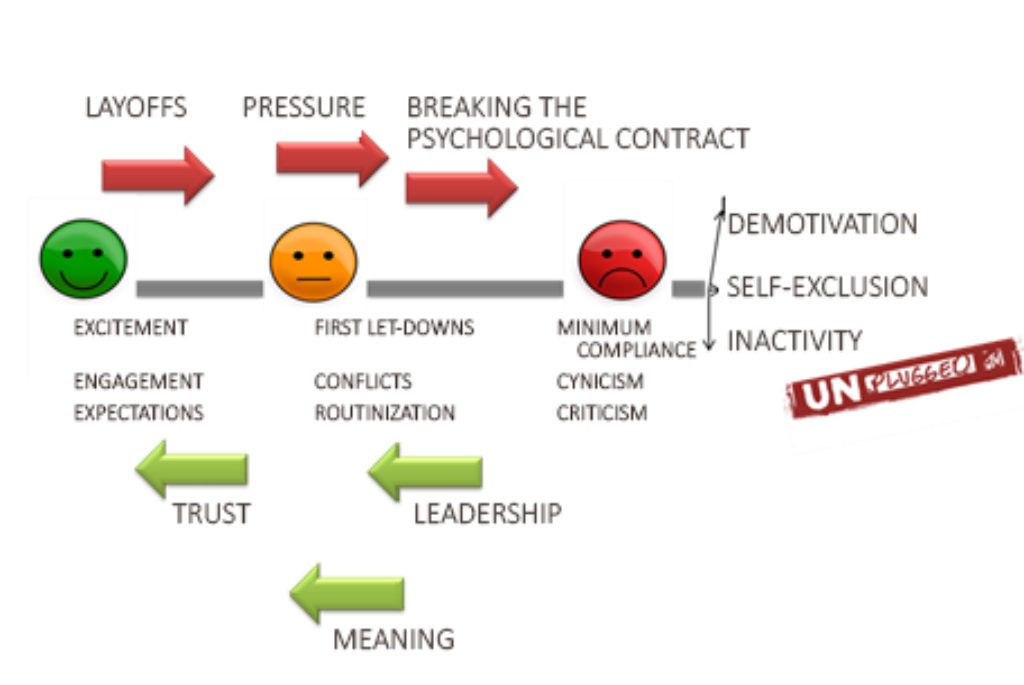
IESE Insight
Who is employable in the new world of work?
Obsolescence looms over many established jobs, and the days of permanent contracts are numbered. It's essential to cultivate your employability and handle terminations well.
Globalization, competition and the economic recession have transformed the work environment.
Not so long ago, entry-level employees could expect to spend their careers growing and developing at a single company. The new reality, however, is that a professional career is composed of many different phases, in many different places.
A report by Pilar García-Lombardía, coordinated by IESE's José Ramón Pin, explores the changing dynamic between employers and employees. Constant work and communication are key, the report finds, to avoid employee disengagement, which may be the result of increased pressure at work or company restructuring (seeing others made redundant). For employees, this disengagement may manifest itself as burnout, cynicism or heightened criticism re: their employers. Once disengagement is entrenched, the best course for all involved may be to terminate the working relationship.
The report underlines that a working relationship should be one of collaboration, not dependency, and reinforces that an excessively paternalistic corporate culture can lead to personal stagnation.
Employment terminations can be fraught with emotion. However, with careful preparation and groundwork on the part of both company and employee, a termination does not have to be seen as a failure. Like any profound change, it can also be viewed as an opportunity, in which continuous education and improving employability play essential roles.

Jobs old and new
In an age of increased mechanization, many once-stable professions are headed toward forced obsolescence. Robots are expected to perform 45 percent of manufacturing tasks by 2025, up from 10 percent today. For those working in jobs that do not require much social interaction, the risk of being replaced may be as high as 90 percent.
Even as some jobs disappear, the transformation of the labor market is creating new jobs, requiring new skill and knowledge sets. Thomas Frey, founder and executive director of the DaVinci Institute and author of Communicating with the Future, talks about 162 new professions. These range from privacy managers to situational therapists, as well as many kinds of experts in elderly care. There will also be job opportunities for "dismantlers," those who disassemble the old system to make way for the new.
Data from the Observatory for Employment in the Digital Age, as part of a Spanish trade fair on digital employment, predict that 8 out of 10 young people aged 20-30 will find employment related to a digital field that does not yet exist. The most in-demand roles will be growth hackers and big-data specialists.
Adapting to the winds of change
It is increasingly common to find workers with specific technical skills working as freelancers on projects that can last for years.
The key to success in this new context depends on employability, the ability to enter and survive in the job market through the development and enhancement of knowledge, skills and attitudes that adapt to permanent change.
This is achieved, the report underlines, by avoiding dependence on any one company and assuming personal responsibility for continuous training and professional development. An essential skill is the ability to anticipate new opportunities and capitalize on them. Workers in the new world of employment cannot resist or merely observe change — they need to lead it.
Methodology, very briefly
The report is based mainly on the conclusions of four round-table discussions focusing on disengagement, contract terminations, new jobs and employability. The sessions were moderated by the directors of human resources and labor relations from Microsoft, Hewlett-Packard, WiZink and Orange, and were attended by 40 senior managers from different companies.
